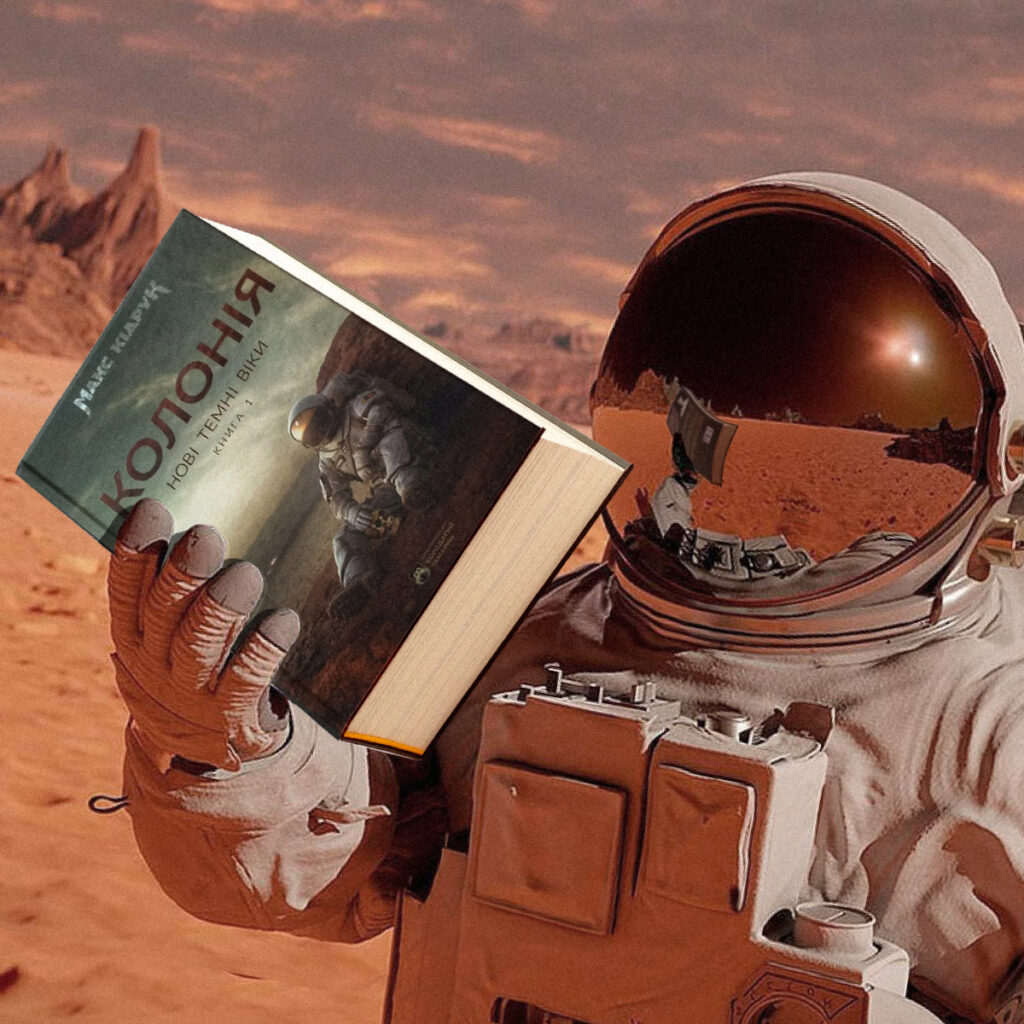One of the main book premieres of 2023 was undoubtedly Max Kidruk’s novel Colony from the New Dark Ages series. We asked the writer how the idea for the book came about, what technologies the colonization of Mars is based on, and importantly, what Mars holds for Ukrainians in the future.

“The novel is set on Mars. Why this celestial body, and not the Moon or Jupiter’s moons?”
“There will be a lot about the Moon in Collapse, the second book in the series. In Colony, I just haven’t gotten to it yet.
“As for Mars, I chose it because, with the exception of the Moon, it is the only celestial body outside the Earth where humans will be able to land in the twenty-first century (not that it will happen, but it is actually accomplishable, at least we have everything for it). It’s also the only body where people can live-under shields of boron ice, in underground dwellings, with something like the telomide I invented for Colony… I mean live, not just survive. No other planet or satellite in the Solar system provides such opportunities. And that’s the main reason why I didn’t even think about Jupiter’s moons. They are too far away, too cold, and they are literally fried by Jupiter’s magnetic field”.
“ In the novel Colony, a significant part of the population of Mars consists of Ukrainians. How do you assess the chances of our country’s representatives going into space in the future?”
“I think the chances are high. We have to knock out the Russians, overcome corruption, and then it’s just a matter of time”.
“Cities on Mars are populated mainly by Europeans and Americans. At the same time, Chinese role is not mentioned. Currently, there is a lot of talk about China’s breakthrough in space. Could it happen that Mars will be Chinese?”
“I don’t think this scenario is realistic. The Chinese economy is a soap bubble that will quickly deflate in the event of a serious conflict with the West. Chinese technologies are mostly secondary to Western ones. Yes, the Chinese have proven that they are capable of carrying out serious space exploration missions, but I don’t see any indications they might ever make some breakthrough to dominate space”.
“What technologies are used for space expansion in Colony? For example, these shuttles that are used to transport a bunch of people into Earth orbit — are they powered by conventional chemical engines or something more fantastic?”
“The upper stages on heavy interplanetary craft (HIC) are oxygen-hydrogen. Oxygen and hydrogen are extracted from water ice at the bottom of lunar craters like Shackleton. The ships of rogue countries, such as Russia or China, may have nuclear jet engines (NJE). The technology is proven, but it is prohibited for use by civilized nations. I do not support this myself, but I assume that with NJE in space, it will be something similar to nuclear power plants on Earth — despite the safety and lack of alternatives, the technology will be banned due to public pressure (they say, “no nuclear reactors above our heads”)”.

“One of the most important fantastic assumptions in the novel is telomide, a life-extending drug. Do you really think that it would be possible to ban it for widespread use? People would just go crazy if they are denied it”.
“They wouldn’t go crazy, for sure. But I agree that it might be difficult to implement such a ban in practice. That is why in the novel I note that telomide is a complex multi-component drug that cannot be produced in an underground laboratory. Its production requires sophisticated technological facilities; it requires serious resource and intellectual costs, which, accordingly, are easy to track”.
“While working on The Colony, you published monthly lists books that you had read on the topic. What are the top 5 books by on space from Max Kidruk?”
“I’m not going to announce them yet. But very soon you will be able to see all of them — all five of them — in the portfolio of Bearded Tamarin publishing house. Stay tuned for announcements!”

